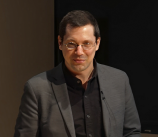Abstract
Because they affect the whole population, vaccination policies are a privileged place to observe contemporary health inequalities. In this presentation, we will return to the social mechanisms explaining these inequalities, but we will also look at the paradoxes revealed by the study of vaccination today. Indeed, the increasing number and politicization of debates on vaccination complicates the relationship usually observed between social resources and the adoption of good health practices. Non-vaccination may reflect a lack of resources limiting access to the healthcare system, but also its opposite: the ability to find competing sources of information and the confidence to question medical authority. Vaccination also highlights the complexity of healthcare decision-making processes, and in particular the gap that can exist between what people think and what they do, as well as the prevalence of indecision in these processes. Using questionnaire surveys on a wide range of vaccines, and looking back at ethnographies of vaccine resistance, we propose to explore the ways in which social inequalities influence healthcare decision-making processes in a context where medical knowledge is contested.

